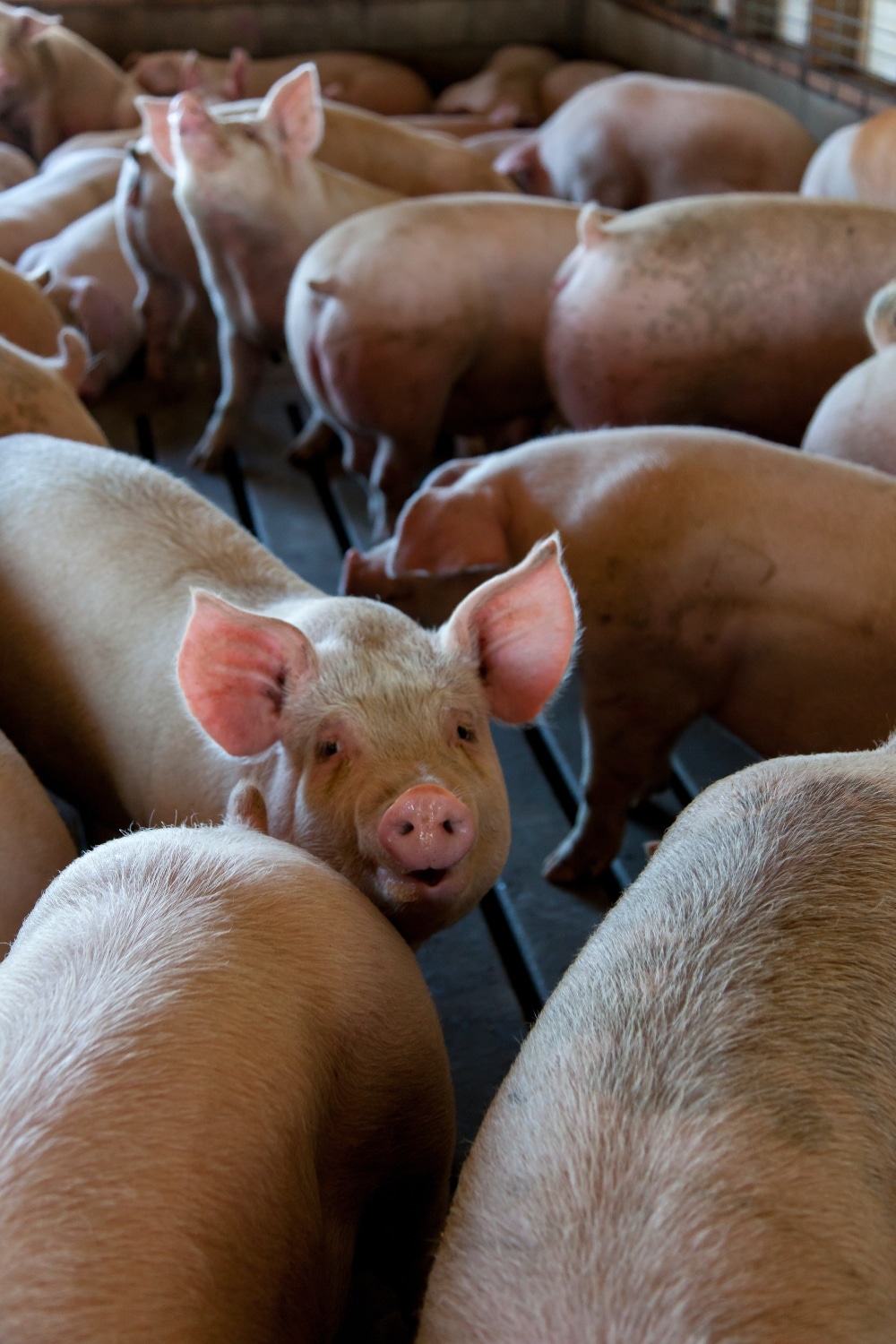Livestock systems are under threat from “simplification, reductionism, and zealotry” implies a document called “The Dublin Declaration.”
The declaration—which aims to advocate for the “societal role of livestock” and the meat industry—indicates that “livestock-derived foods,” like meat, dairy, and eggs, are essential for health. It claims to be backed up by nine new research papers published in the journal Animal Frontiers and boasts the signatures of nearly 1,000 doctors.
But just how much attention should we be paying to this declaration? After all, there are also thousands upon thousands of doctors who advocate for the adoption of a plant-forward diet. And it is now becoming widely accepted that richer countries in the global north need to reduce meat consumption for the benefit of the planet.
Here, we take a closer look at what the science and many of the experts are saying on this issue.
 Unsplash
Unsplash
Fill your plate with whole foods, say many doctors and dietitians
The Dublin Declaration makes some big, bold claims about the global population and its need for products derived from animal agriculture. For example, it says that these products “provide a variety of essential nutrients and other health-promoting compounds, many of which are lacking in diets even among those populations with higher incomes … Well-resourced individuals may be able to achieve adequate diets while heavily restricting meat, dairy, and eggs. However, this approach should not be recommended for general populations.”
While it is true that not all vegan diets (or diets free from “livestock-derived foods”) are healthy (for example, one person can live on nothing but fries and fizzy drinks and call themselves a vegan), there is a wide body of research that supports the notion that whole food, plant-based lifestyles are healthy.
For example, the Physicians Committee for Responsible Medicine—a non-profit health organization with more than 17,000 physician members—consistently advocates for the power of a well-planned, well-balanced, plant-forward, whole food-rich diet in reducing the risk of chronic diseases, like heart disease, diabetes, and cancer, and maintaining overall good health.
And they’re not alone. Multiple studies and experts have concluded that filling your plate with fruits, vegetables, nuts, whole grains, pulses, and beans is one of the healthiest ways to eat. Find out more about the benefits of a whole-food, plant-based diet here.
“Most people consume animal products because they believe they are necessary to meet dietary needs,” Alona Pulde, MD, told VegNews. “The reality is that plant foods not only contain all the nutrients that we need but are also bundled in a significantly healthier package.”
Is meat healthy?
Pulde—who was one of the physicians behind the popular plant-based documentary Forks Over Knives—also adds that meat actually has proven links with chronic disease. Even the World Health Organization, for example, has classified processed meat and red meat as group 1 and group 2 carcinogens, respectively.
“Meat, especially highly processed meat, has been linked to high blood pressure, heart disease, type 2 diabetes, weight gain, gastrointestinal disorders, and certain cancers,” adds Pulde. “Turns out meat is not only not crucial for health, it actually directly contributes to disease.”
Stephanie Wells, MS, RD, the founder of Thyme to Go Vegan Nutrition Services, agrees with Pulde that a well-planned, plant-based diet is nutritionally adequate for most people.
“There’s merit to the claim that meat provides essential nutrients for people in developing countries where malnutrition is prevalent, but this doesn’t mean that meat is biologically required for human health,” she explains. “The Academy of Nutrition and Dietetics has stated in its position paper on vegetarian diets that well-planned vegan and vegetarian diets are nutritionally adequate for all stages of life.”
 Pexels
Pexels
Is the Dublin Declaration biased?
So, if there is a strong body of evidence that supports the notion that plant-based diets are healthy for most people, why is the Dublin Declaration claiming otherwise?
According to Sentient Media, a non-profit news organization dedicated to changing the conversation around animal agriculture, it may have little to do with animal industry bias.
A recent report by the organization found that a number of the signatories of the Dublin Declaration have “intimate ties” to the animal agriculture industry. Frank Mitloahner, for example, runs a research center that receives millions in funding from the livestock industry. It also found that 16 signatories work directly with Ireland’s Agriculture and Food Development Authority.
Another interesting insight from Sentient Media is that a disproportionate number of signatories are located in the global north (817, to be exact). This is an area of the world that has come under heavy security for high meat consumption in recent years, with several experts calling on richer countries to reduce this consumption to cut emissions.
Meat and the environment
According to the United Nations, animal agriculture is responsible for 14.5 percent of global emissions. It’s also a leading driver of deforestation and contributes to many other environmental issues, like water pollution and wastage. Because of this impact, in April 2022, one study from the University of Bonn in Germany called for rich countries to cut meat consumption by at least 75 percent, as they are putting an unnecessary strain on the planet through a high demand for meat.
Plus, in 2018, the biggest-ever food production study from the University of Oxford also found that going vegan was the single-biggest change a person could make to reduce their impact on the environment.
“Not all foods are created equal,” says Pulde, before reiterating that the bottom line is the more nutritious plants you eat, the better. ”If you are looking for a way to be healthier, while also supporting the health of our planet, aim to incorporate as many whole plant-based foods, while limiting or eliminating your consumption of animal products.”
For more on meat and health, read:
JUMP TO ... Latest News | Recipes | Guides | Health | Shop









